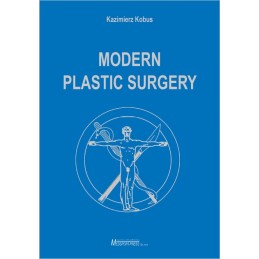- New

Order to parcel locker

easy pay


 Delivery policy
Delivery policy
Choose Paczkomat Inpost, Orlen Paczka, DHL, DPD or Poczta Polska. Click for more details
 Security policy
Security policy
Pay with a quick bank transfer, payment card or cash on delivery. Click for more details
 Return policy
Return policy
If you are a consumer, you can return the goods within 14 days. Click for more details
PREFACE
According to Heraclitus, panta rhei — everything flows — meaning that everything changes over time. New ideas, methods, and technologies constantly replace or transform older ones. Even if these innovations are not always ideal, they often carry the promise of progress and a better future. Although change is inevitable and often beneficial, it frequently provokes fear of the unknown and a longing for stability. This fear can lead to hesitation and resistance, making the implementation of new ideas difficult, delayed, or only partially accepted. As some sarcastic progressives say, this may be because common sense is not so common. However, more plausible explanations for conservative attitudes include the weight of tradition, the influence of education, and even the bruised egos of decision-makers. Reluctance to embrace change often leads to the portrayal of proponents of radical — or even slightly controversial — ideas as reckless disruptors of established, reliable systems.
In medicine, the tension between old and new often stems from differing interpretations of the Latin maxim salus aegroti suprema lex — the patient’s well-being is the highest law. This principle can be invoked by both traditionalists and progressives to support opposing views. For conservatives, extensive and high-risk procedures such as face transplants are deemed unacceptable due to the significant dangers of infection and malignancies associated with immunosuppressive therapy. Indeed, answering the question of whether the anticipated improvement in quality of life justifies the inevitable risks — and potential shortening — of life is profoundly difficult, especially as the wait for safe and effective immunosuppressants continues. Similar concerns arise regarding the aggressive treatment of severe congenital malformations or catastrophic trauma, especially when there is little hope for recovery. Such interventions are often viewed as contradictory to the principle of humanizing medicine. Moreover, the rise of evidence-based medicine, bureaucratic constraints, excessive subspecialization, and the growing influence of lawyers and economists on healthcare systems have all been met with criticism. These developments are seen by some as distancing medicine from its core mission of compassionate care.
Nevertheless, according to sound medical ethics and in line with modern trends, patients should be offered all available treatment options — including experimental therapies when appropriate. This does not imply that progress demands victims; rather, it reflects a commitment to offering hope and potential cures to those who are willing to take the risk.
Effective modern treatment requires collaboration across a wide range of medical specialties, with roles and competencies adapted to meet contemporary needs. This is especially true in plastic surgery, which incorporates elements of nearly all surgical disciplines in its reconstructive work. Its techniques and insights should be shared across other specialties for the benefit of comprehensive patient care.
Despite persistent objections and skepticism, the case for progress and development is ultimately undeniable. Therefore, current best practices and achievements should evolve in harmony with emerging innovations. The future — with its promise of robotics, breakthroughs in immune tolerance, advanced genetic engineering, and the much-anticipated growth of artificial intelligence (AI) — appears bright, albeit unpredictable.
Ideal solutions, however, remain rare. For pessimists, the future evokes concerns of dehumanization, surgeon unemployment, or the need for retraining. Optimists, by contrast, see AI as a collaborative partner rather than a replacement for physicians.
In any case, AI will require continuous oversight by licensed professionals, as it can make errors and lacks the nuanced clinical judgment of experienced human doctors. So, let us hope for the best — and as the saying goes, qui vivra verra (he who lives, shall see).
OPIS
Modern plastic surgery jest kontynuacją cyklu zapoczątkowanego przez polsko-angielski Atlas Chirurgii Plastycznej. Autorem jest profesor chirurgii plastycznej, doktor honoris causa Kazimierz Kobus, który przedstawił w niej uwarunkowany historycznie, aktualny potencjał i zakres działania chirurgii plastycznej, rekonstrukcyjnej i estetycznej, ukierunkowanej na współpracę z nieomal wszystkimi specjalnościami zajmującymi się leczeniem wad rozwojowych, urazów i nowotworów.
Książka ilustrowana licznymi przykładami dawnego i współczesnego leczenia operacyjnego w Szpitalu Chirurgii Plastycznej w Polanicy-Zdroju oraz w działającej na jego bazie Klinice Chirurgii Plastycznej Uniwersytetu Medycznego we Wrocławiu.
Szczególną uwagę zwrócono na złożoną, ale nobilitującą w pewnym sensie działalność z zakresu chirurgii czaszkowo-twarzowej, mikrochirurgii oraz osteogenezy dystrakcyjnej. Ponadto, w książce zawarto sugestie odnośnie wielospecjalistycznego leczenia, ze szczególnym uwzględnieniem najcięższych schorzeń i zniekształceń.
W części poświęconej chirurgii estetycznej, poza wynikami leczenia omówiono sprawdzone oraz aktualne trendy i metody postępowania, ze wskazaniem na wątpliwą skuteczność oraz szkodliwości dyskusyjnych i nieuprawnionych sposobów leczenia.
Data sheet
Reference: 20266
Author: Sławomir Tubek
Reference: 20687
Author: Stephen Rollnick
Jak skutecznie pomagać pacjentom w zmianie stylu życia
